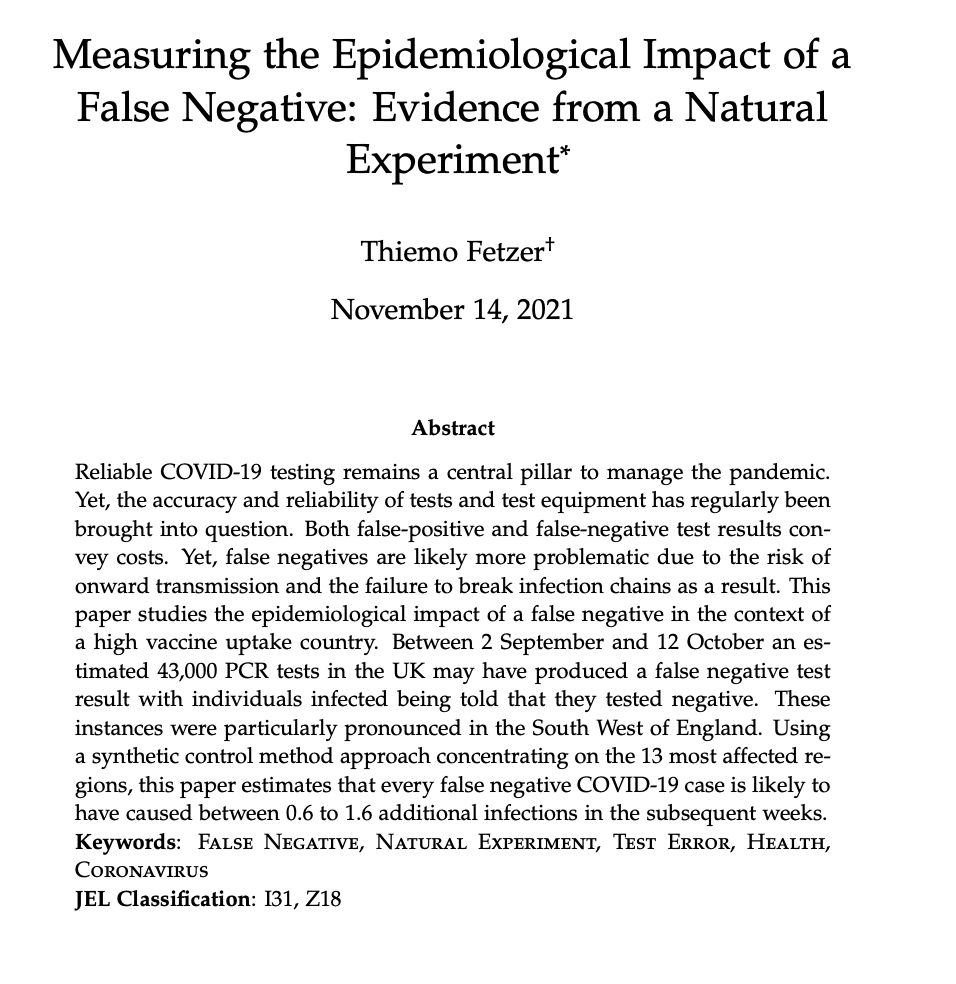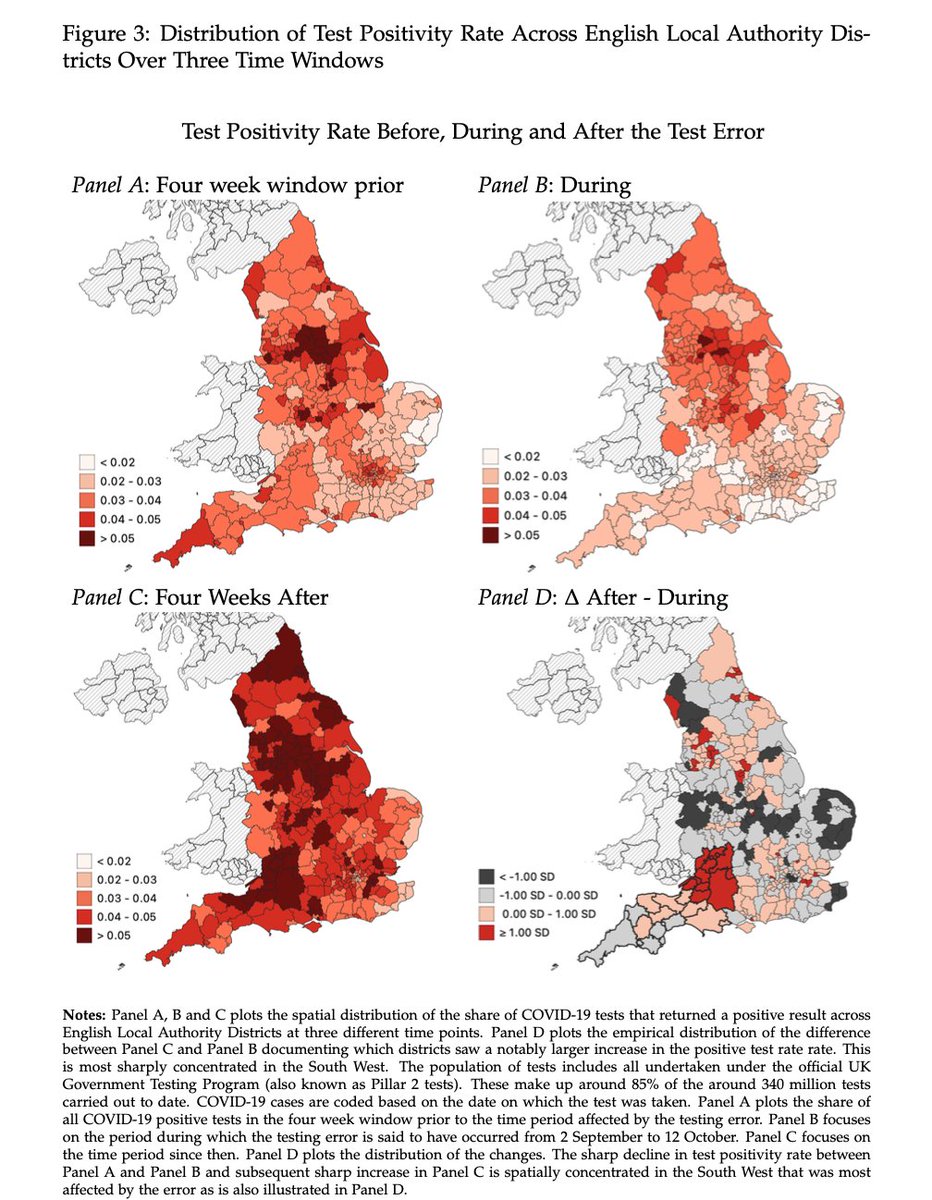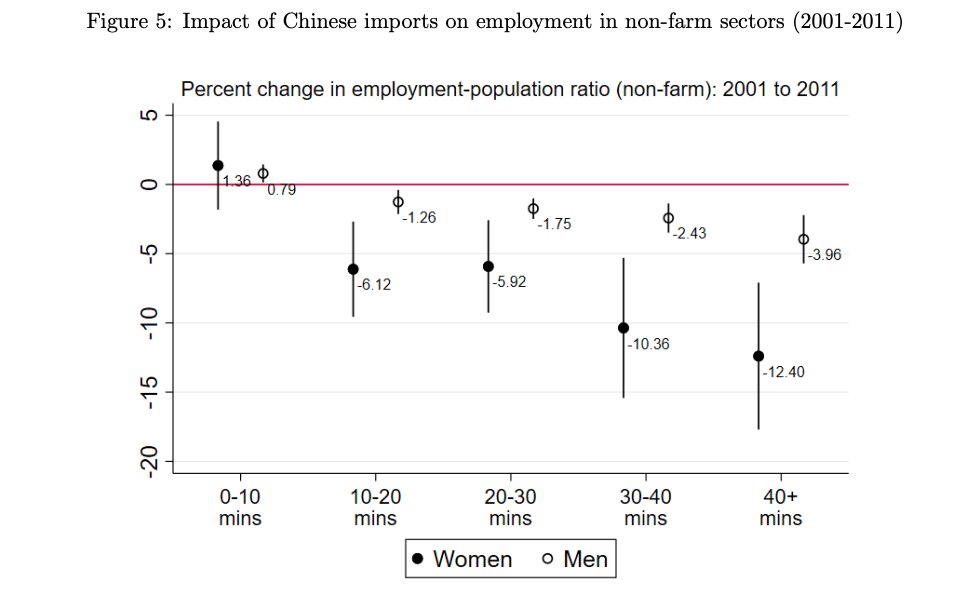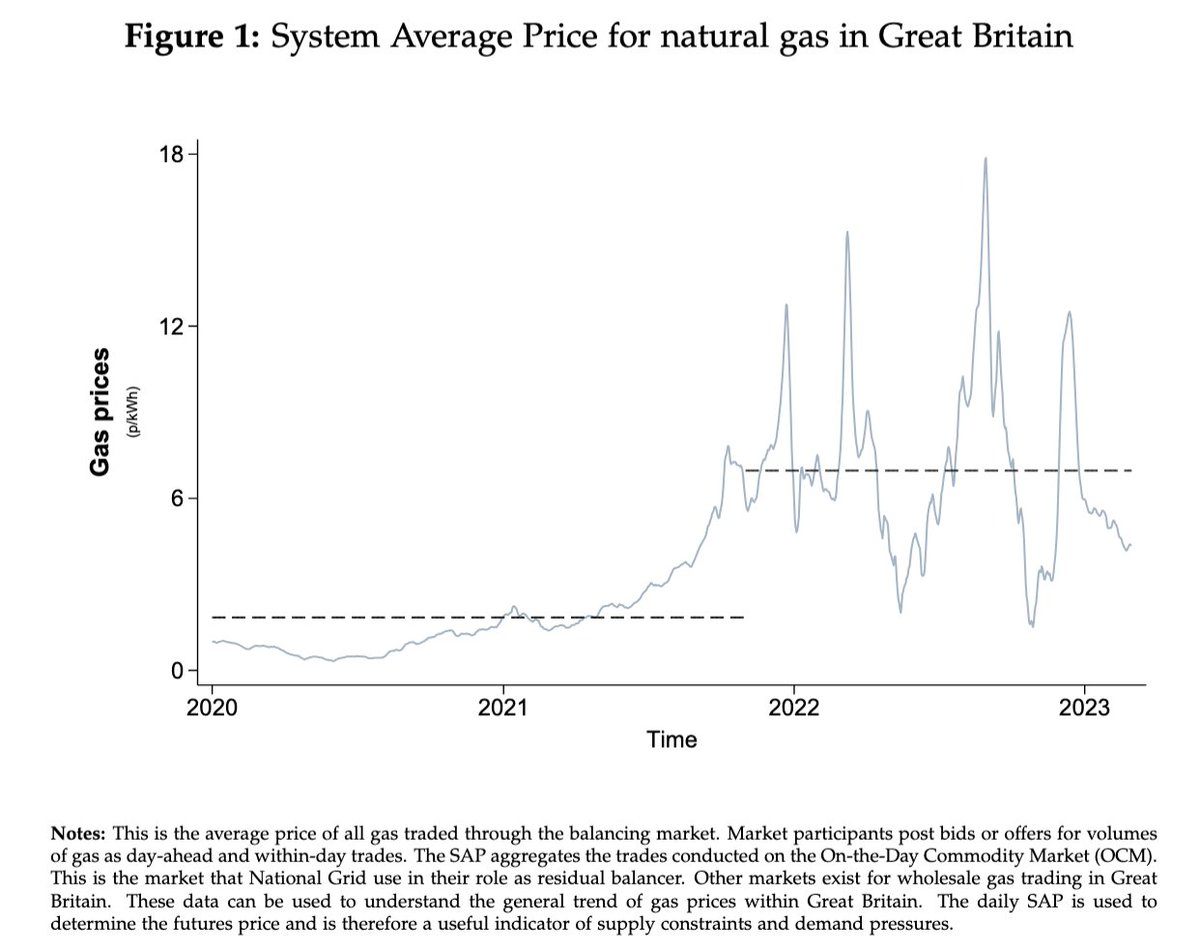What is the epidemiological impact of a #falsenegative #COVID test? An important question in a high vaxx/low NPI context, but one that cannot be studied in a experiment for obvious reasons. Enter the UK, a reliable supplier of #naturalexperiments. 🧵⬇️
➡️bit.ly/3DhqQv5
➡️bit.ly/3DhqQv5

On Oct 15, @UKHSA suspended an #Immensa lab, because of community reports of neg PCR tests following a pos lateral flow. There was loads of excellent reporting e.g. by @rowenamason @tomjs @JamieGrierson. NHS TT estimates that 43,000 individuals may have been given a .. 2/N 



false negative result most concentrated in South West of England. Even across all of England, a notable increase in both absolute # and relative % of PCR tests matched to a positive LFD tests producing a negative result from early Sept to early Oct 3/N 

this is also visible in overall testing comparing the 13 allegedly most affected districts with the rest of England, you see similar evolution of % of positive tests & # of cases, up until 2 Sept from then on the rates go down, before shooting up after the lab was suspended 4/N 

Geographically, map plots the % of positive tests A. four weeks prior to the lab returning false neg; B. the 5 weeks when it was producing false negs; C. & four weeks after. D plots highlights districts in SW standing out with massive ⬆️ in % tests after suspension of lab. 

So how can we quantify if this testing error impacted #covid19 infections? @BorisJohnson claims the it did not (bbc.com/news/health-58…). We lack granular data, but🤞 a FOI I launched (whatdotheyknow.com/request/immens… ) aims to pry open some data. In the meantime, I used a synthetic.. 5/N 

control approach focusing on the 13 districts that were said to have been most affected. This allows for a cleaner quantification of the impacts by contrasting case figures relative to a more credible/cleaner counterfactual 6/N 

Doing so, I estimate that every missed case has lead to between 0.6 to 1.6 additional infections. Combined, this would imply that 43k missed + cases implied between 25 - 68k additional cases. 7/N 

The analysis is also done district-by-district, suggesting some heterogeneity. But really more data is needed to refine the analysis as it does suggest that the % of tests processed by the Wolverhampton lab varied over time. 8/N 







The lumpiness of missing cases on specific dates suggests that errors may have been due to faulty equipment, environmental conditions or consistent mishandling in specific days/shifts. The @Independent @samueljlovett had a piece with a whistleblower independent.co.uk/news/health/co… 9/N 

Now where to take it from here? It's imperative that a full independent investigation is carried out of what went wrong. Maintaining trust in the testing system & the guidelines is key, but so is accountability and transparency. The pandemic has been a financial boon to many 10/N
many firms that were awarded huge contracts without tender. The UK testing system is much better than what exists in e.g. Germany, but it has cost taxpayers around GBP 37 bn. So its evident there needs to be more public scrutiny & its crucial academics get the right data 11/N.
And here is the @cage_warwick Working Paper version: warwick.ac.uk/fac/soc/econom…
• • •
Missing some Tweet in this thread? You can try to
force a refresh


















